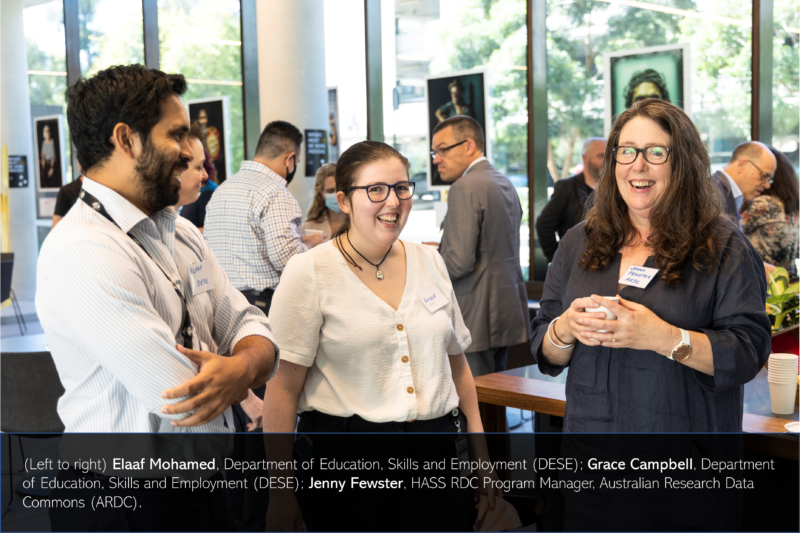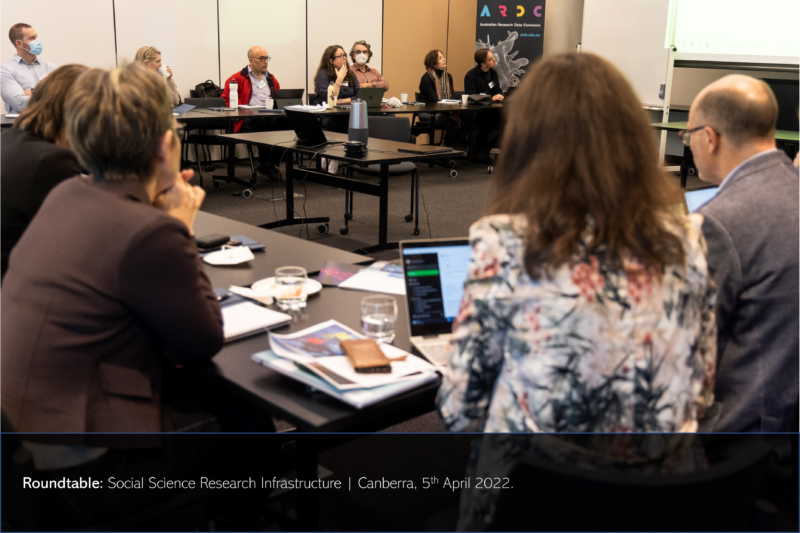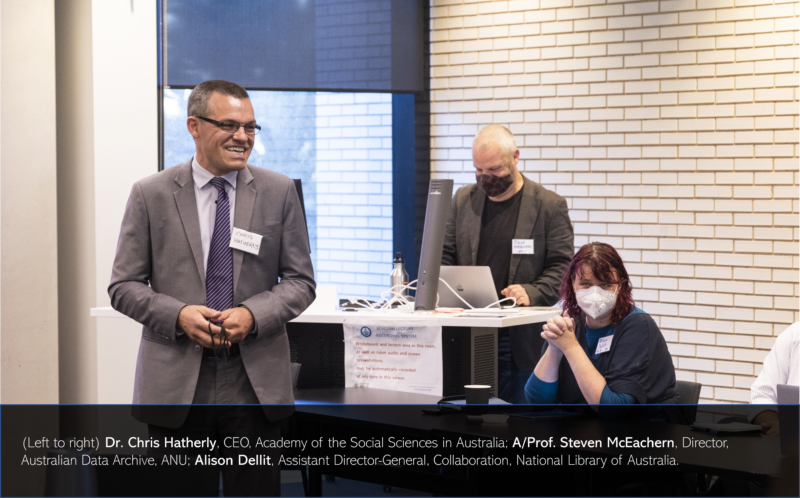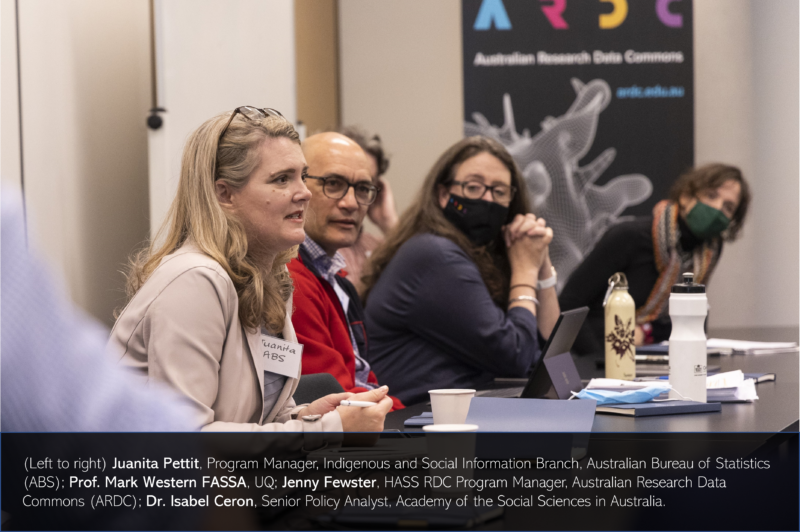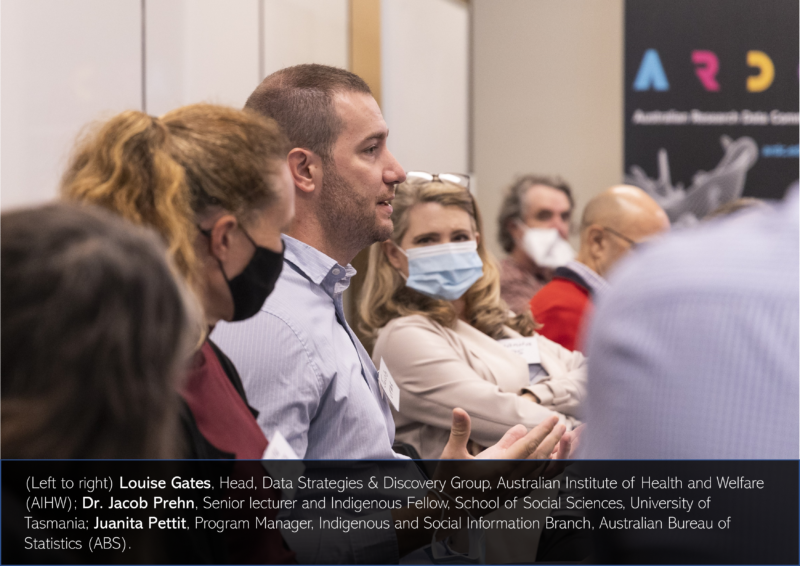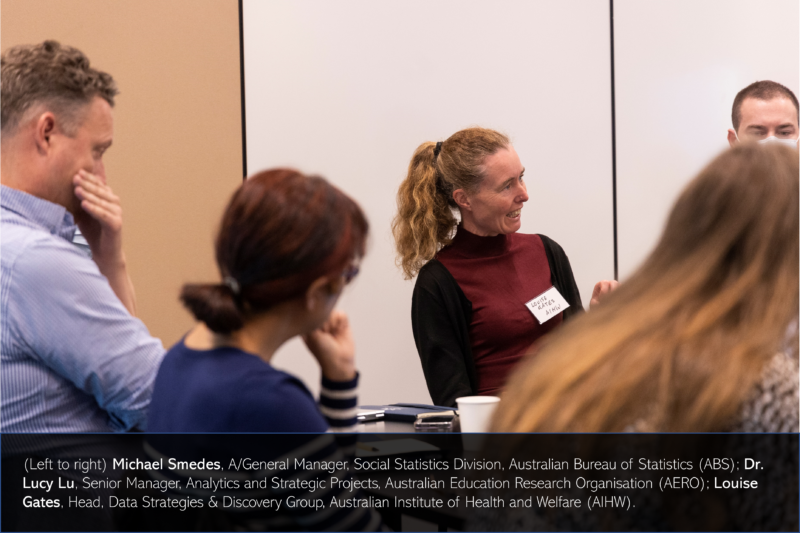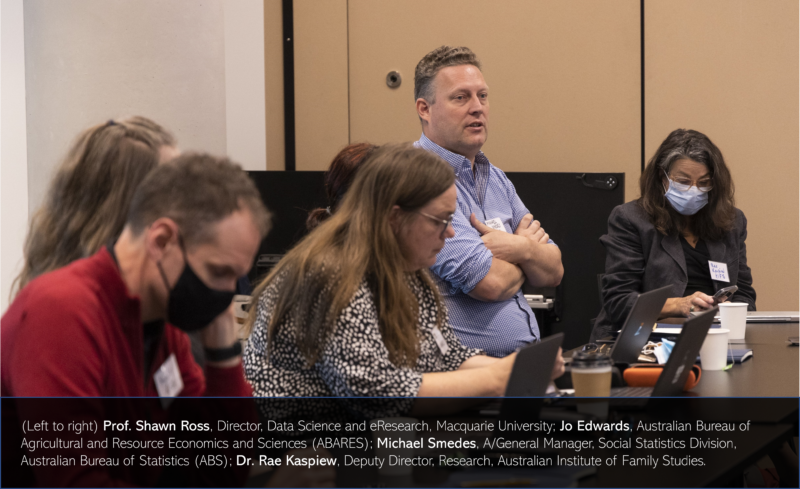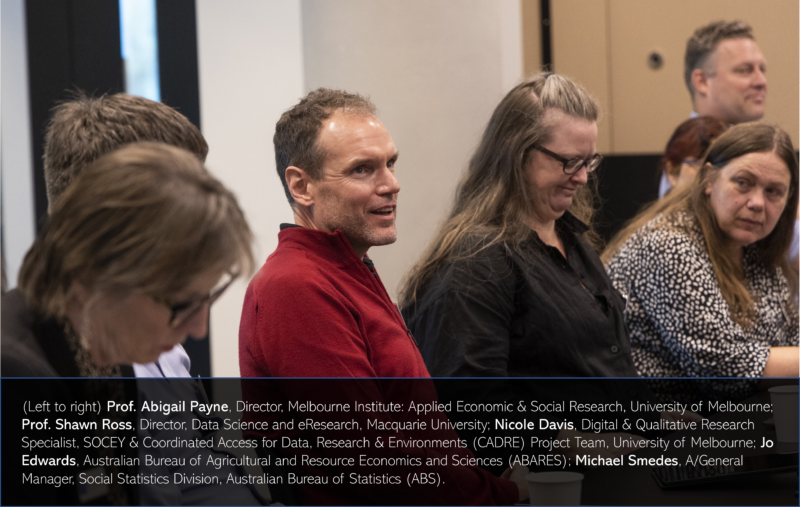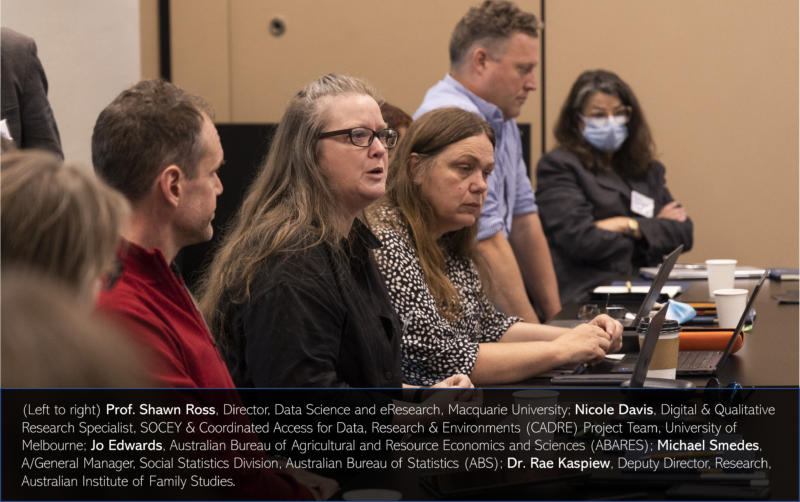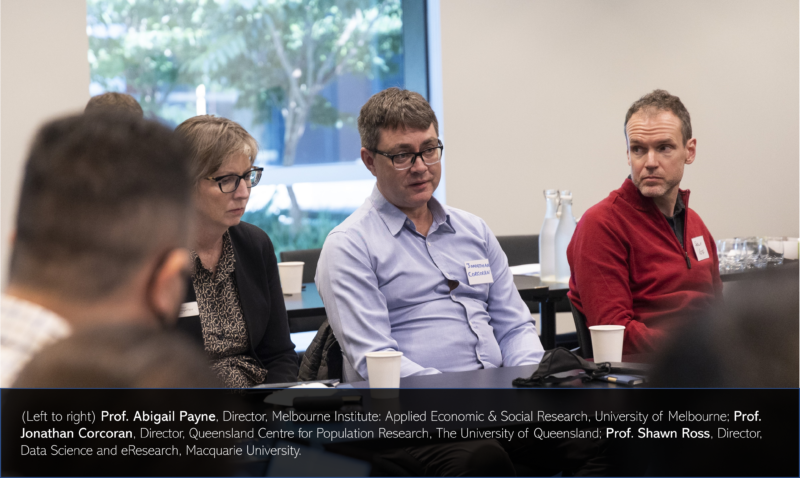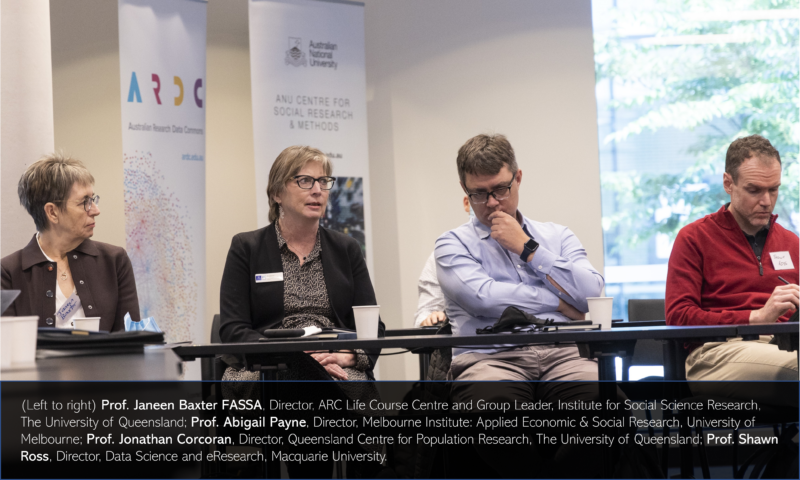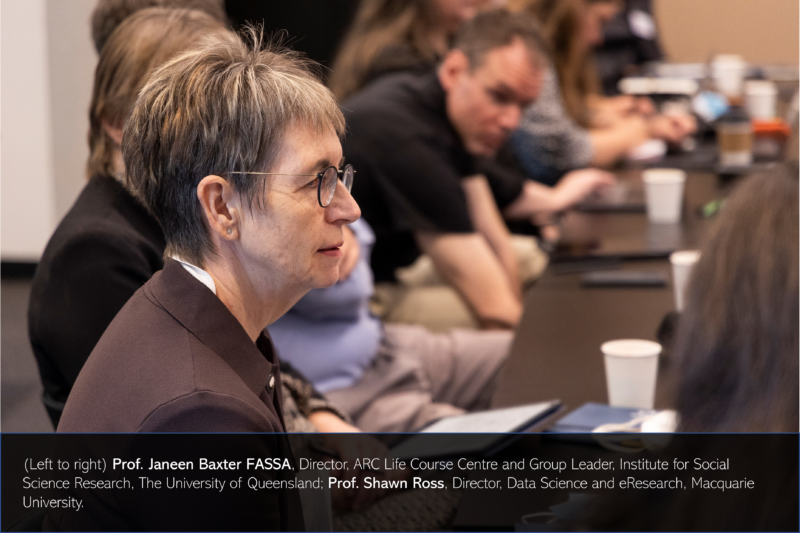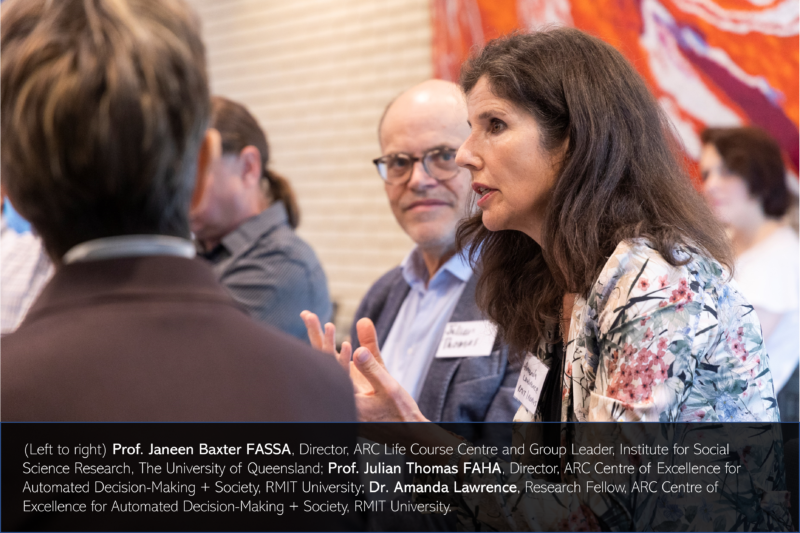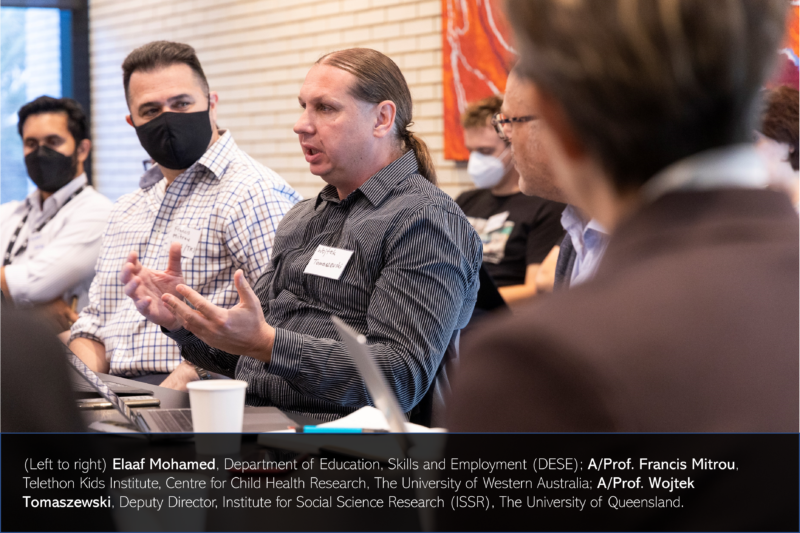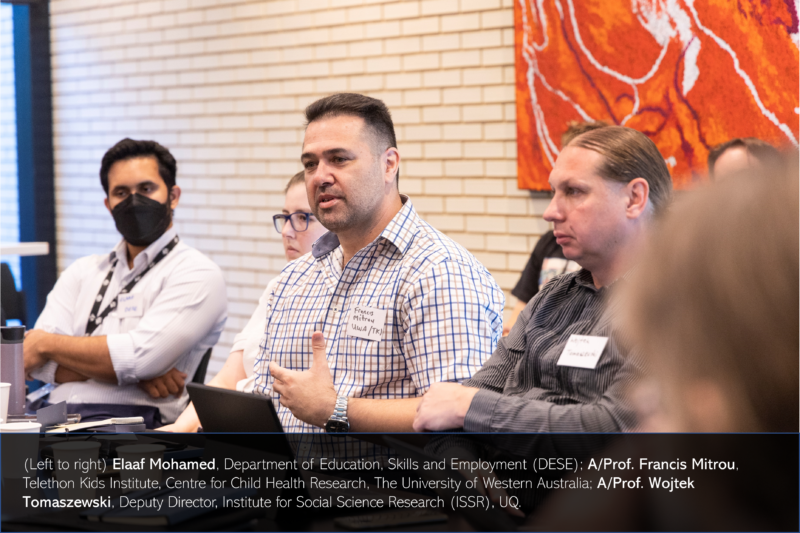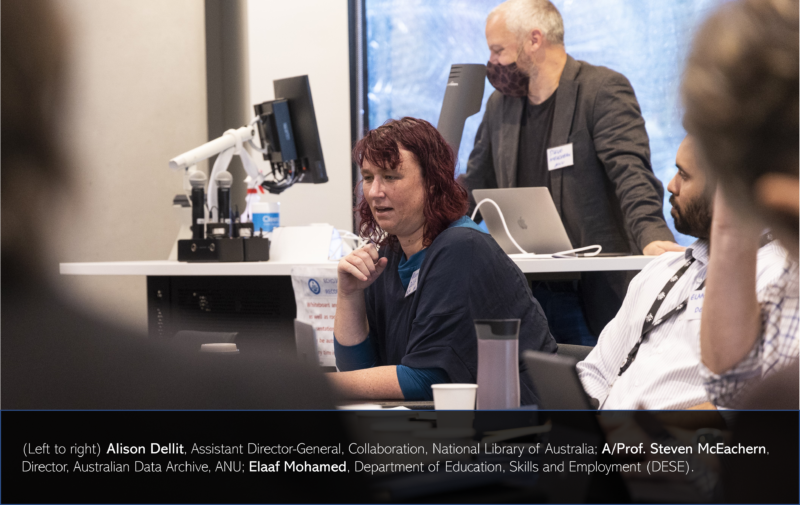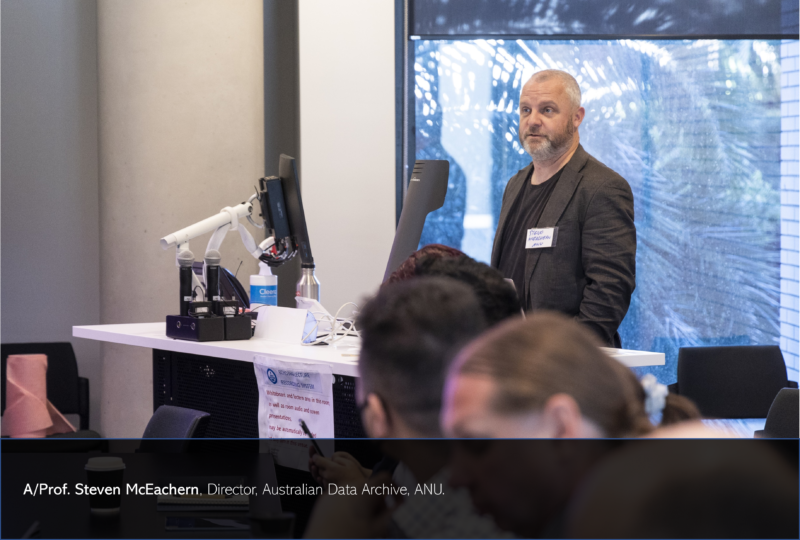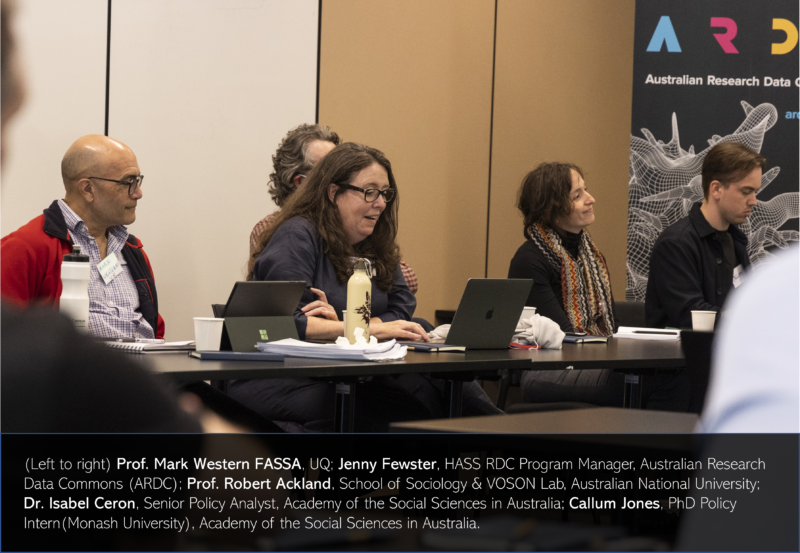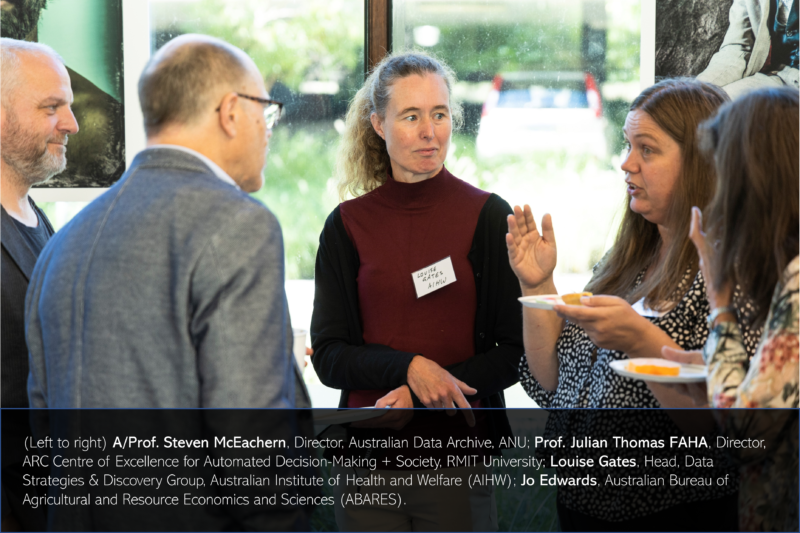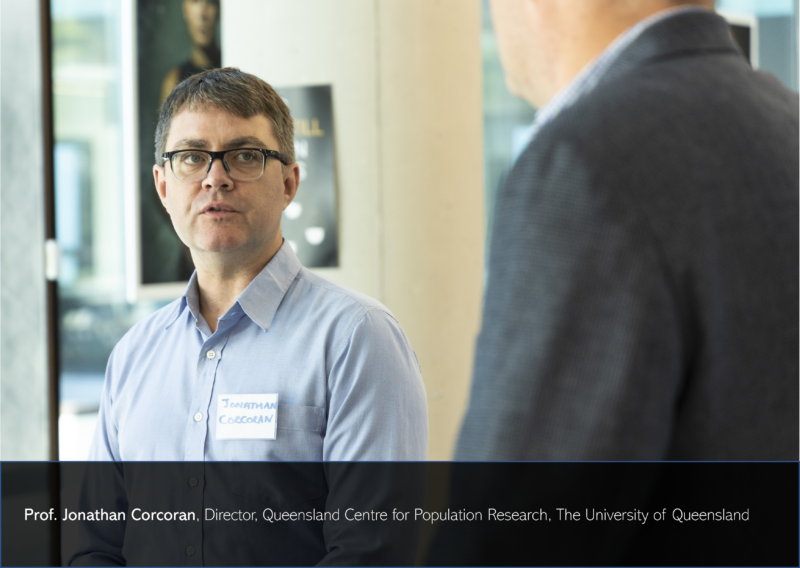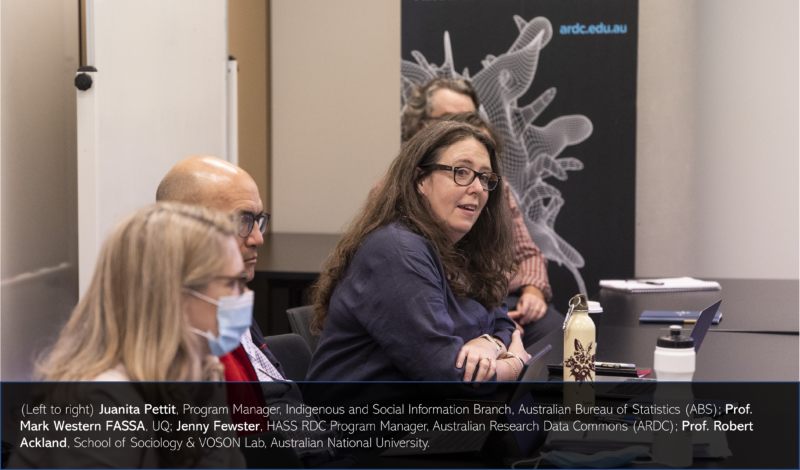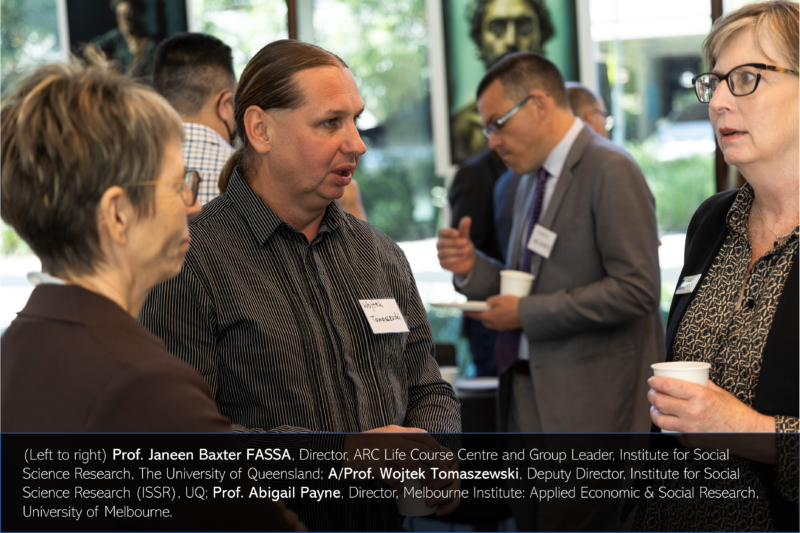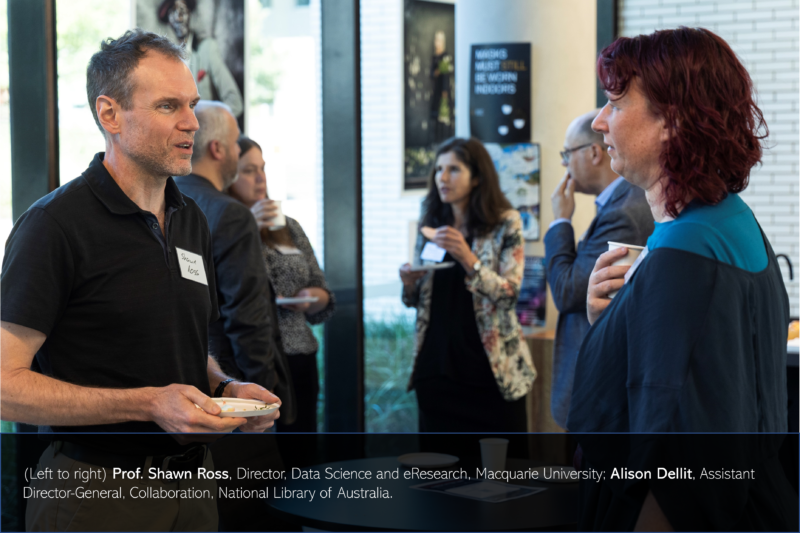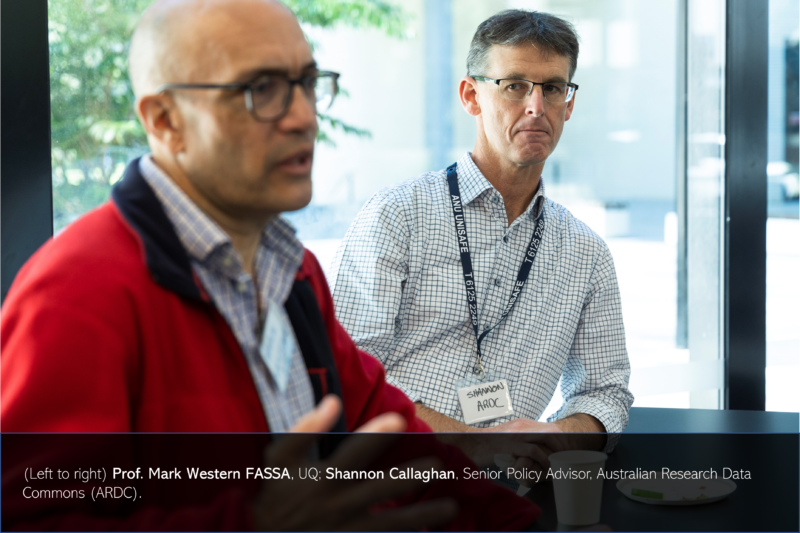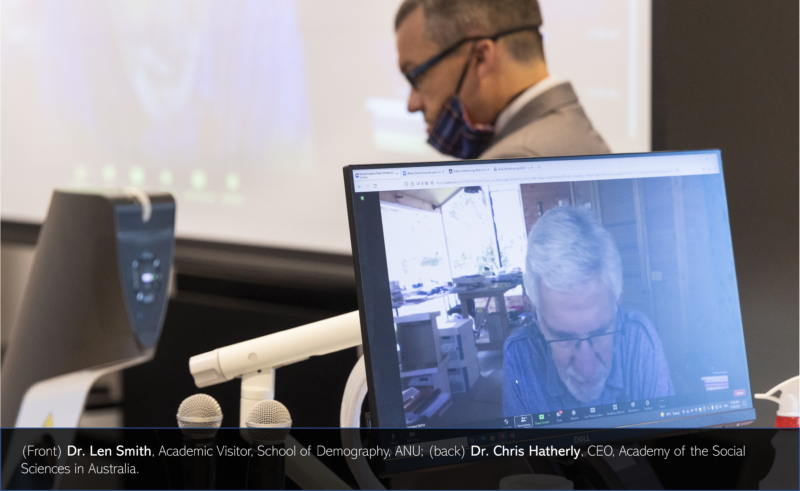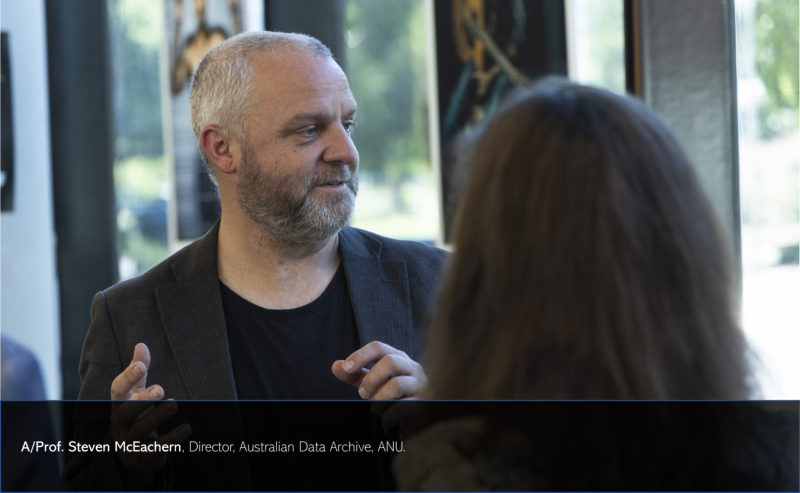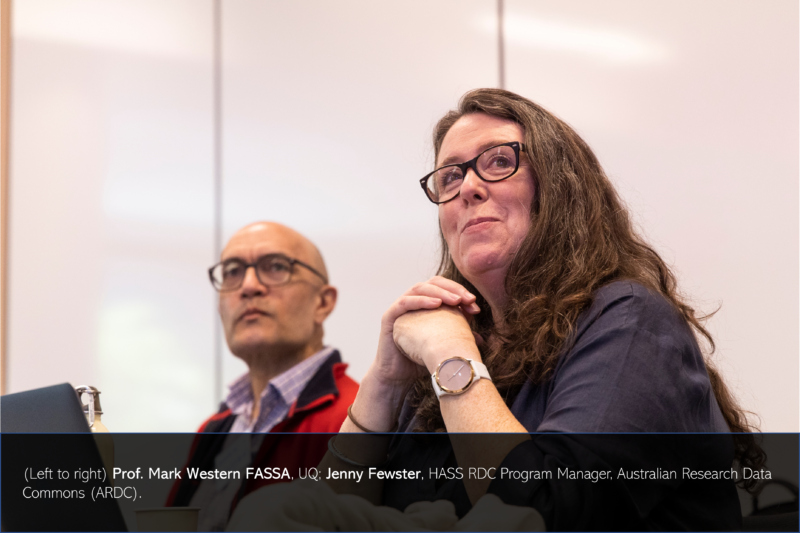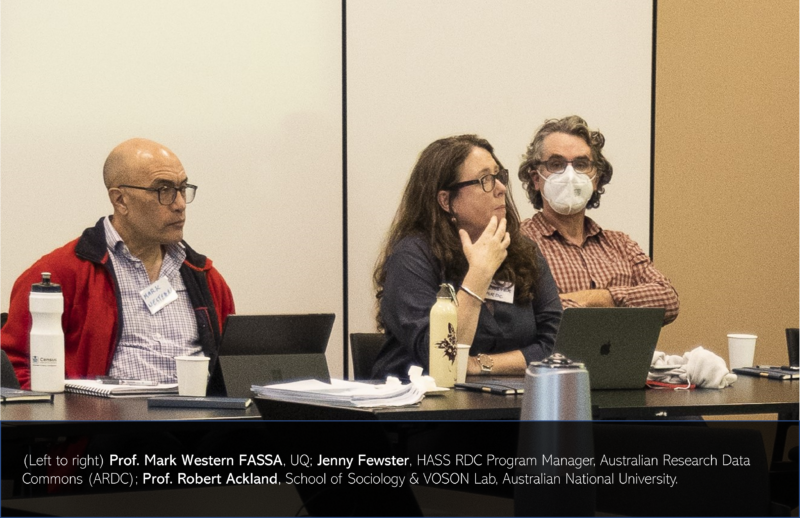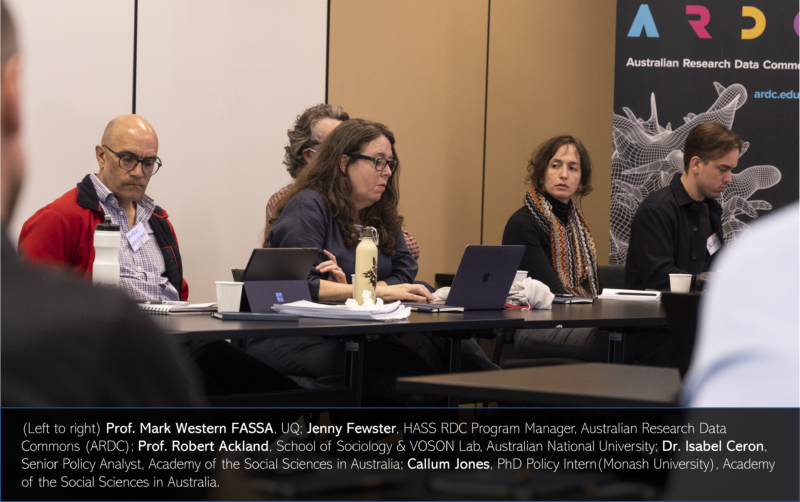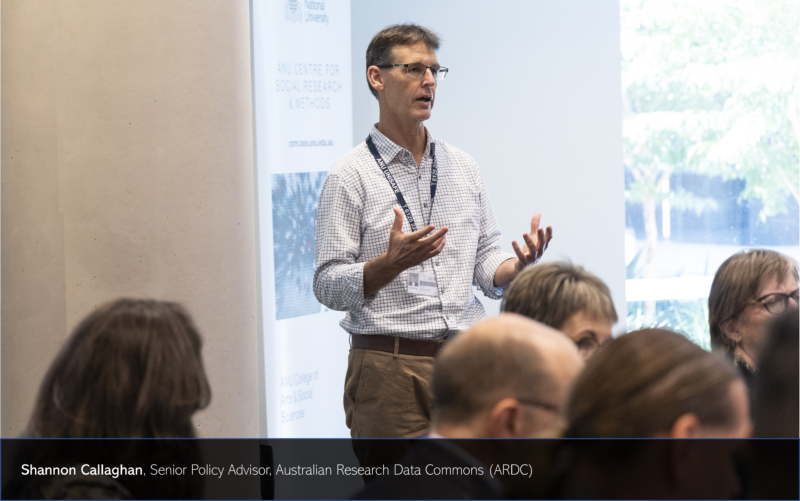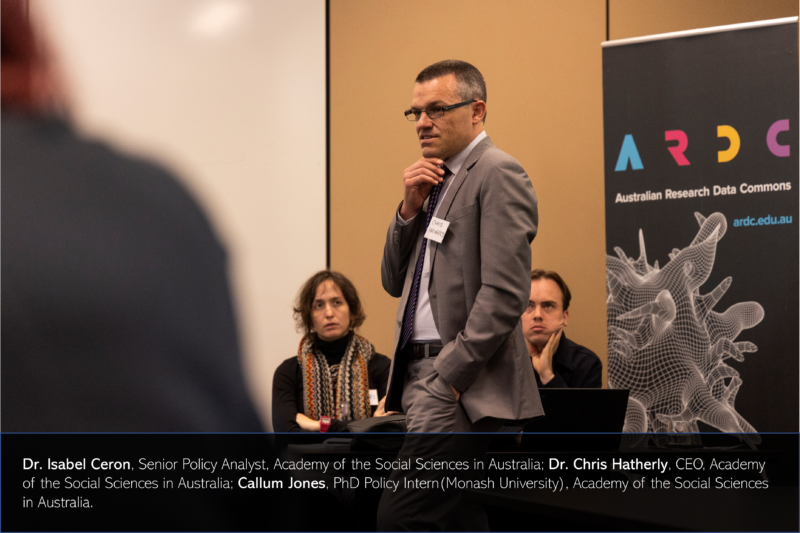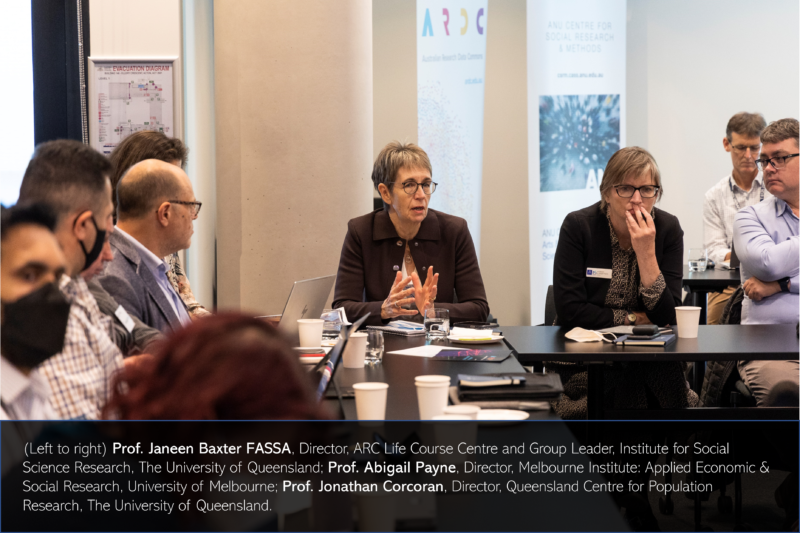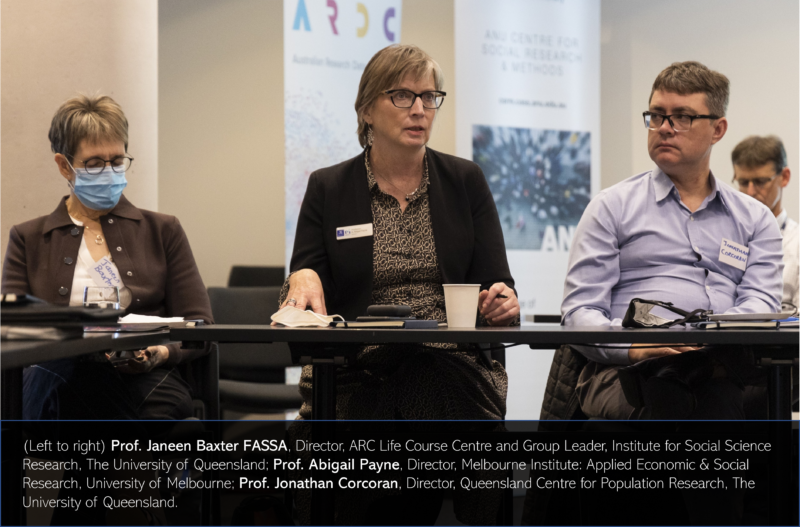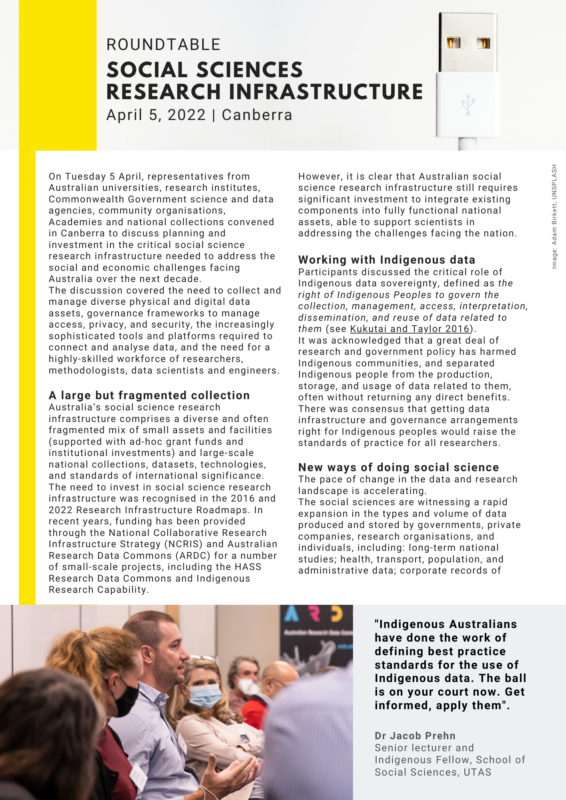Social Science Research Infrastructure
Canberra, 5th April 2022 (Roundtable)
On Tuesday 5 April, representatives from Australian universities, research institutes, Commonwealth Government science and data agencies, community organisations, Academies and national collections convened in Canberra to discuss planning and investment in the critical social science research infrastructure needed to address the social and economic challenges facing Australia over the next decade.
The discussion covered the need to collect and manage diverse physical and digital data assets, governance frameworks to manage access, privacy, and security, the increasingly sophisticated tools and platforms required to connect and analyse data, and the need for a highly-skilled workforce of researchers, methodologists, data scientists and engineers.
A large but fragmented collection
Australia’s social science research infrastructure comprises a diverse and often fragmented mix of small assets and facilities (supported with ad-hoc grant funds and institutional investments) and large-scale national collections, datasets, technologies, and standards of international significance.
The need to invest in social science research infrastructure was recognised in the 2016 and 2022 Research Infrastructure Roadmaps. In recent years, funding has been provided through the National Collaborative Research Infrastructure Strategy (NCRIS) and Australian Research Data Commons (ARDC) for a number of small-scale projects, including the HASS Research Data Commons and Indigenous Research Capability.
However, it is clear that Australian social science research infrastructure still requires significant investment to integrate existing components into fully functional national assets, able to support scientists in addressing the challenges facing the nation.
Working with Indigenous data
Participants discussed the critical role of Indigenous data sovereignty, defined as the right of Indigenous Peoples to govern the collection, management, access, interpretation, dissemination, and reuse of data related to them (see Kukutai and Taylor 2016).
It was acknowledged that a great deal of research and government policy has harmed Indigenous communities, and separated Indigenous people from the production, storage, and usage of data related to them, often without returning any direct benefits.
There was consensus that getting data infrastructure and governance arrangements right for Indigenous peoples would raise the standards of practice for all researchers.
New ways of doing social science
The pace of change in the data and research landscape is accelerating.
The social sciences are witnessing a rapid expansion in the types and volume of data produced and stored by governments, private companies, research organisations, and individuals, including: long-term national studies; health, transport, population, and administrative data; corporate records of health and consumer behaviour; online platforms, search and social media data (video, audio, images, text, and structured data); and the huge amount of information coming from sensors, ‘wearables’, and the internet of things.
This proliferation of data comes accompanied by an increase in the availability and sophistication of automated and autonomous tools, such as reusable research code, natural language processing, machine learning, and artificial intelligence.
Digital technologies, in sum, are transforming the options and approaches available to social science researchers, government, industry, and the community to think about and address social and economic challenges. To benefit from these technologies (and understand and avoid their risks), Australia must invest in the tools and integrated data systems that will allow social science researchers in all sectors to elevate the standard of evidence.
A new distributed governance model
Participants agreed that a national federated, distributed infrastructure model is most likely to succeed in linking existing data structures together (assets and tools owned or operated by different universities, non-profit organisations, and levels of government).
Australia has an opportunity to become a leader in cutting-edge research environments for social science, through the integrated collection, connection, and analysis of diverse data sources and formats at a scale not previously possible. Other opportunities include transitioning from data-focused to code-focused data commons, developing systems for modeling and real-time monitoring of policy implementation and impact, and establishing innovative data donation and crowdsourcing tools.
Towards a social science research infrastructure decadal plan
The roundtable closed with an agreement on the value of forming an alliance of stakeholder organisations to act as a representative voice for those using research infrastructure to address and advance social and economic challenges, act as a partner in the planning and implementation of national strategic research infrastructure, and as an expert group available to consult broadly and represent the sector in advocating for necessary change.
The first task for this alliance would be a sector-based Decadal Plan to inform future investment in social sciences, humanities, and related research infrastructure over the coming decade.
Convenors
- Prof. Mark Western FASSA, UQ
- A/Prof. Steven McEachern, Director, Australian Data Archive, ANU
- Dr. Len Smith, Academic Visitor, School of Demography, ANU
- Jenny Fewster, HASS RDC Program Manager, Australian Research Data Commons (ARDC)
- Shannon Callaghan, Senior Policy Advisor, Australian Research Data Commons (ARDC)
- Dr. Chris Hatherly, CEO, Academy of the Social Sciences in Australia
- Dr. Isabel Ceron, Senior Policy Analyst, Academy of the Social Sciences in Australia.
Sponsors
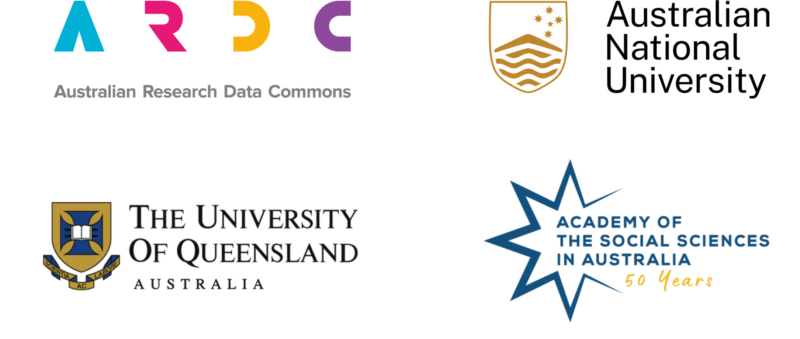
Participants
- Prof. A. Abigail Payne, Director, Melbourne Institute: Applied Economic & Social Research, University of Melbourne
- Alison Dellit, Assistant Director-General, Collaboration, National Library of Australia
- Dr. Amanda Lawrence, Research Fellow, ARC Centre of Excellence for Automated Decision-Making + Society, RMIT University
- A/Prof. Francis Mitrou, Telethon Kids Institute, Centre for Child Health Research, The University of Western Australia
- Dr. Jacob Prehn, Senior lecturer and Indigenous Fellow, School of Social Sciences, University of Tasmania
- Prof. Janeen Baxter FASSA, Director, ARC Life Course Centre and Group Leader, Institute for Social Science Research, The University of Queensland
- Prof. Janet McCalman AC FAHA FASSA, Emeritus Redmond Barry Professor, University of Melbourne
- Jo Edwards, Australian Bureau of Agricultural and Resource Economics and Sciences (ABARES)
- Prof. Jonathan Corcoran, Director, Queensland Centre for Population Research, The University of Queensland
- Juanita Pettit, Program Manager, Indigenous and Social Information Branch, Australian Bureau of Statistics (ABS)
- Prof. Julian Thomas FAHA, FAHA, Director, ARC Centre of Excellence for Automated Decision-Making + Society, RMIT University
- Prof. Julie McLeod FASSA, Professor of Education, Pro-Vice Chancellor (Research Capability), Studies of Childhood, Education & Youth (SOCEY), University of Melbourne
- Louise Gates, Head, Data Strategies & Discovery Group, Australian Institute of Health and Welfare (AIHW)
- Dr. Lucy Lu, Senior Manager, Analytics and Strategic Projects, Australian Education Research Organisation (AERO)
- Dr. Merran Smith, Chief Executive, Population Health Research Network (PHRN), The University of Western Australia
- Michael Smedes, A/General Manager, Social Statistics Division, Australian Bureau of Statistics (ABS)
- Nicole Davis, Digital & Qualitative Research Specialist, SOCEY & Coordinated Access for Data, Research & Environments (CADRE) Project Team, University of Melbourne
- Dr. Peter Davidson, Principal Advisor, Australian Council of Social Service (ACOSS)
- Dr. Rae Kaspiew, Deputy Director, Research, Australian Institute of Family Studies
- Prof. Robert Ackland, School of Sociology & VOSON Lab, Australian National University
- Robert Kancans, Australian Bureau of Agricultural and Resource Economics and Sciences (ABARES)
- Prof. Shawn Ross, Director, Data Science and eResearch, Macquarie University
- A/Prof. Wojtek Tomaszewski, Principal Research Fellow, Institute for Social Science Research (ISSR), UQ.

